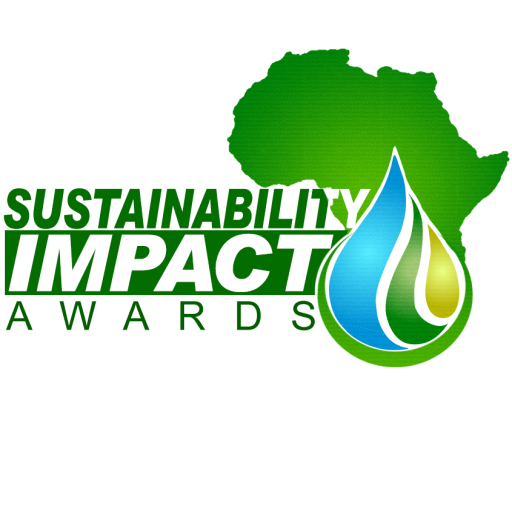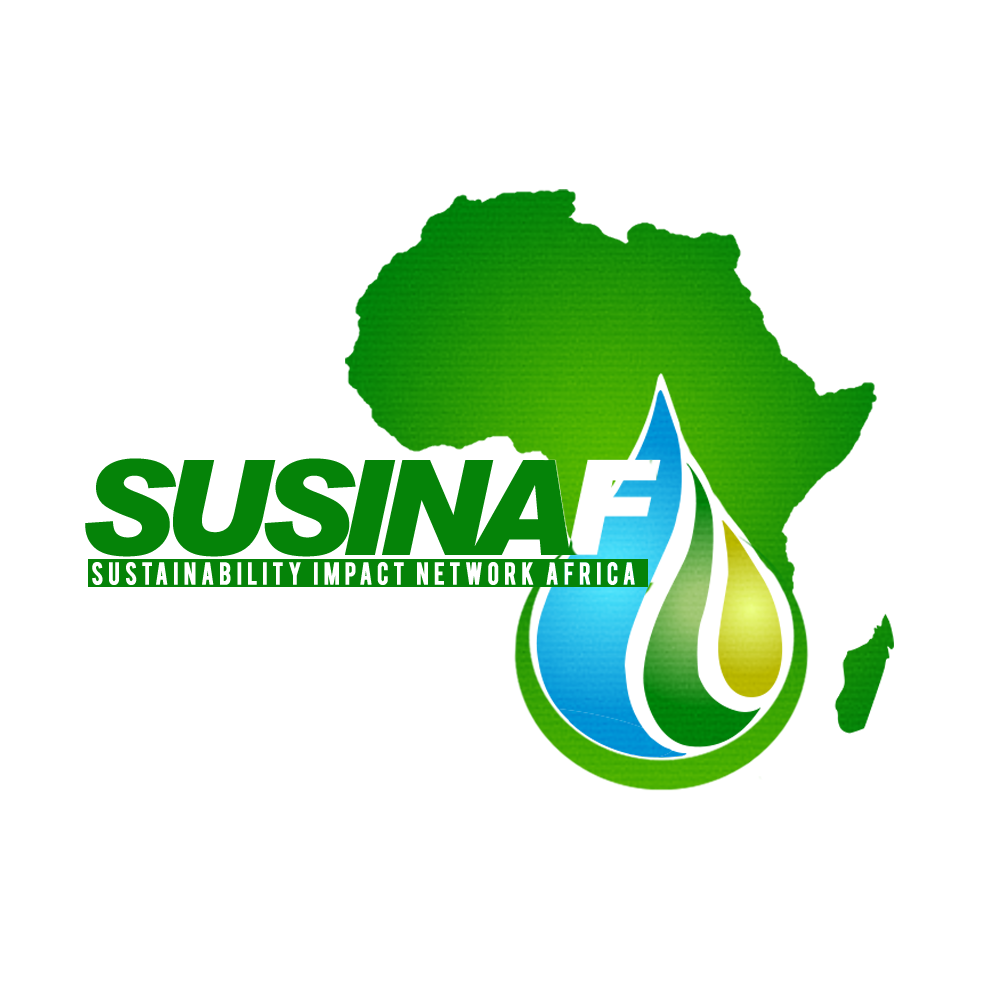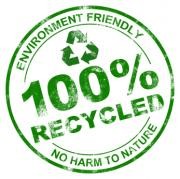he U.N. Commission on Environment and Development definition of sustainability is operating our organizations and living our lives in a manner which meets the needs of the present without compromising the ability for future generations to meet their needs.
Over the last decade, sustainability has changed from an issue that only concerned dedicated environmentalists to an issue recognized throughout an organization as an opportunity for increased profits and competitive advantage.

Continents
Countries
Sustainable Organisations
ccording to the most recent United Nations summit, the top 7 global issues that are driving concern about climate and the environment are (in no particular order):
• Oceans – the seas help regulate our rainwater, drinking water, weather, climate, much of our food, and even the air we breathe
• Energy – sustainable energy is needed for strengthening our economies, protecting our ecosystems, and achieving equality
• Jobs – economic action and social policies are critical for stability. “Green jobs” contribute to preserving or restoring the quality of the environment
• Water – water scarcity, poor water quality, and inadequate sanitation creates big challenges for the poor
• Disasters – earthquakes, floods, droughts, hurricanes, and tsunamis can impact people, environments, and economies
• Cities – challenges maintaining cities that create jobs and prosperity while not straining the land and resources. Common city challenges include congestion, lack of funds for basic services, shortage of adequate housing, and declining infrastructure
• Food – soils, freshwater, oceans, forests, and biodiversity are being degraded. Climate change is putting even more pressure on resources.
Sustainability is Everybody’s Responsibility
The challenge with corporate sustainability is creating a fundamental shift in every industry, every company, and with every employee. Successful sustainability requires getting everyone to realize that Sustainability is my Responsibility. It is much more than just good ideas and pilot projects from an organization’s Sustainability Manager.
Success means that every employee can contribute their ideas toward maximizing resource efficiency, eliminating waste, and ultimately a zeroing out of an organization’s environmental impact. In short, sustainability is synonymous with good business. This guide is intended to provide you with the tools you need to make sustainability a cornerstone of how your business operates.
Sustainability Means Zero Waste
The ultimate sustainability goal is zero impact on the environment through integration with and respect for the natural environment. In the zero waste business model, every resource used in the creation and delivery of a product or service is renewable and completely recyclable. In the zero waste lifestyle, consumers look for products and services that save money, that are healthier, and that are better for the environment.
The chart below helps clarify the challenge of achieving sustainability through achieving zero waste.
Zero Waste:
|
100% Reuse of:
|
Current Production Methods are not Sustainable
Unfortunately, our current production methods and life-styles are not sustainable. We power our lives with non-renewable natural resources like coal and oil, destroy biodiversity as our cities expand into natural areas, and generate harmful waste from sites like Chernobyl, the BP Oil Spill, and the Fresh Kills landfill on Staten Island that can be seen from the moon.
The strains our current production methods place on the environment are only expected to increase as world population increases by 50% between now and 2050, and the standard of living continues to advance in developing countries.
This worldwide growth in resource consumption creates a serious risk for ecosystem collapse, massive extinctions, fierce competition—and even wars—for limited resources, and a reduced standard of living for everyone.
The Major Impacts of Pursuing Sustainability
Public Appeal
Being a leader in implementing sustainable strategies can greatly improve your customers’ perception of you business. Recent research shows consumers’ strengthening preference for brands that can demonstrate their sustainability credentials. This is also true in the business-to-business sector where procurement tenders often require details of environmental and corporate social responsibility (CSR) initiatives.
Innovation Overdrive
Innovation can help businesses unlock the value of sustainability as a core business strategy. Sustainability must be a critical part of research and development, supply chain innovation, and go-to market strategies. Harnessed correctly, innovation can provide new strategic choices, enhance shareholder and societal involvement and goodwill, and enable the business to minimize environmental impact.
Shareholder Value
Sustainability and its alter-ego, CSR, have long fallen under the guardianship of risk management. This view is changing, with investors and customers increasingly rewarding organizations that wholeheartedly embrace sustainability with superior sales and shareholder value.
Employee Recruitment and Retention
Sustainability is an aspect of corporate culture that an increasing number of prospective employees consider when sizing up possible employers.
Improved Efficiencies
Eliminating waste and saving raw materials helps your business run leaner and saves you money.
Reduce Business Risk
Reduce the business risk associated with your products or services by eliminating toxins, by-products, waste, and other undesirable outcomes.
Important Questions to Ask Your Organization
In order to identify these opportunities, every manager, researcher, and employee should ask themselves the following key questions:
- Where can we remove material content from our products?
- Where can our waste products be added to other processes?
- How does the product price compare to the lifecycle cost of the product (manufacture and development, sale, operation, and disposal at the end of its life)?
- What harmful or potentially harmful chemicals can we eliminate from our products or services?

Sustainability Organizations
There are many groups dedicated to advancing sustainability. This page provides you with an overview of some, but not all, of the organizations defining sustainability today. This listing will certainly change as the market develops, but here is a brief summary of the most well-known leaders in the space:
- The Global Reporting Initiative
- The World Resource Institute
- International Society of Sustainability Professionals
Despite the wonderful work produced by these organizations, the sustainability industry as a whole has lacked a dominant authority, dominant standard, and a consistent set of terms and beliefs. Sure, at a high level, many organizations have agreed on the same metrics for defining success. It is these high-level preferences that have provided an overarching framework within which companies and organizations have worked toward achieving internal sustainability goals.
The Global Reporting Initiative
The Global Reporting Initiative’s (GRI) mission is to create conditions for the transparent and reliable exchange of sustainability information through the development and continuous improvement of the GRI Sustainability Reporting Framework.
Most Fortune 500 and governmental organizations follow the GRI’s reporting framework for sustainability.
Learn more about the Global Reporting Initiative.


World Resources Institute (WRI)
The World Resources Institute, in partnership with the World Business Council on Sustainable Development, has developed the internationally accepted and the most widely used greenhouse gas accounting standard.
The WRI Greenhouse Gas Protocol (GHG Protocol) sets international standards on greenhouse gas accounting and reporting. The GHG Protocol provides the framework for government programs and corporate greenhouse gas inventories worldwide.
Learn more about the World Resources Institute.
International Society of Sustainability Professionals
The International Society of Sustainability Professionals (ISSP) is the world’s leading professional association of sustainability professionals. This organization works to make sustainability standard practice through empowering professionals to advance sustainability in businesses and communities around the globe. As a professional association, ISSP improves the skills of sustainability practitioners through ISSP Sustainability Professional Certification, education, knowledge sharing, research, and professional credentials.
Learn more about the International Society of Sustainability Professionals

Other Organizations Worth Noting
Dow Jones Sustainability Index (DJSI) – Launched in 1999, the Dow Jones Sustainability Indexes are the first global indexes tracking the financial performance of the leading sustainability-driven companies worldwide. Based on the cooperation of Dow Jones Indexes and SAM they provide asset managers with reliable and objective benchmarks to manage sustainability portfolios.
The Carbon Disclosure Project – The Carbon Disclosure Project,, representing 300 large institutional investors worldwide and more than $41 trillion in funds under management, investigates the emissions strategies of companies. This is one example of investor pressure for sustainability creating different costs of capital depending on a company’s level of emissions.
The Forest Stewardship Council – The FSC sets international standards for responsible forest management. Over the past 13 years more than 90 million hectares in more than 70 countries have been certified according to its standards.
The Electronic Industry Code of Conduct – This code has been adopted and implemented by the world’s leading electronics brands and their suppliers.
The Business Social Compliance Initiative – A broad business-driven platform for the improvement of social compliance in all supplier countries and for all consumer goods with a membership comprising more than 80 companies.
The Suppliers Ethical Data Exchange (SEDEX) – A web-based system for companies to maintain data on labor practices at production sites, supported by a group of UK retailers and suppliers including Geest, Marks & Spencer, Northern Foods, RHM, Sainsbury’s, Tesco, Uniq and Waitrose. SEDEX covers 13,000 suppliers and is adding 500 each month.
California Climate Action Registry – The California Climate Action Registry is a program of the Climate Action Reserve and serves as a voluntary greenhouse gas (GHG) registry to protect and promote early actions to reduce GHG emissions by organizations. The California Registry has provided leadership on climate change by developing and promoting credible, accurate, and consistent GHG reporting standards and tools for organizations to measure, monitor, third-party verify and reduce their GHG emissions consistently across industry sectors and geographical borders.
The Climate Registry (TCR) – THE CLIMATE REGISTRY is a nonprofit collaboration among North American states, provinces, territories and Native Sovereign Nations that sets consistent and transparent standards to calculate, verify and publicly report greenhouse gas emissions into a single registry.
Western Climate Initiative – The WCI is a collaboration of independent jurisdictions working together to identify, evaluate, and implement policies to tackle climate change at a regional level. This is a comprehensive effort to reduce greenhouse gas pollution, spur investment in clean-energy technologies that create green jobs and reduce dependence on imported oil.
SSP Sustainability Certification
Thousands of people from a variety of backgrounds contribute to the corporate social responsibility efforts of their organization and call themselves a “sustainability professional.”
While the field has been enriched and informed by the diversity of expertise these people bring, it has also created inconsistency in practice and definition. In order for the field and its professionals to be taken seriously and be granted due credibility, there needs to be some definition and standardization of the competencies employers and seekers of consultants can come to expect.


Professional Sustainability Certification
Governed by the International Society of Sustainability Professionals (ISSP), ISSP Certification strengthens the hiring process by highlighting clear knowledge areas and technical skills of sustainability professionals.
The Value of ISSP Certification
This professional credentialing program offers value to building operations personnel and sustainability practitioners by:
- providing cohesion and definition to the emerging profession of sustainability
- providing validation to employers that a standard level of competency has been met
- providing practitioners with evidence of credibility, furthering their career opportunities
ISSP Certification offers the first globally recognized and accredited credential to describe professionals who assess sustainability risks and opportunities in public and private organizations.
ISSP Credentialing Process
The ISSP sustainability certification program is comprised of two tiers.
The first tier is the ISSP Sustainability Associate (ISSP-SA). The ISSP-SA exam is a required first step and covers the core concepts and terms related to sustainability.
The second tier is the ISSP Certified Sustainability Professional (ISSP-CSP). The ISSP-CSP exam covers the technical processes for implementing a sustainability strategy and measuring its progress.
Both certifications require ongoing professional development activities that may include a combination of related work experience, training, and/or ISSP membership.



